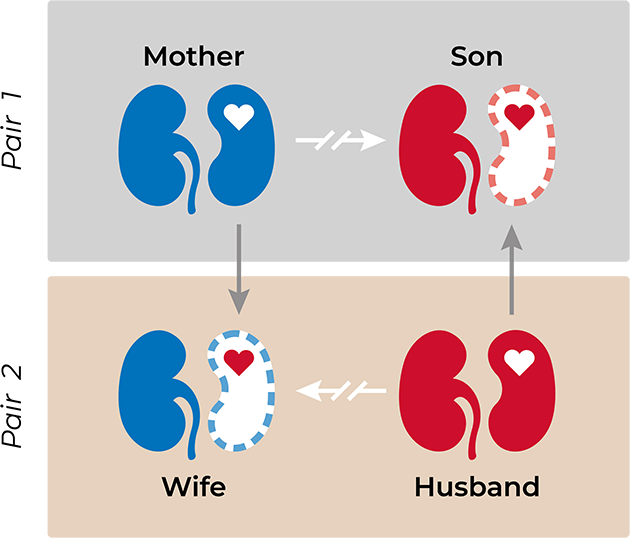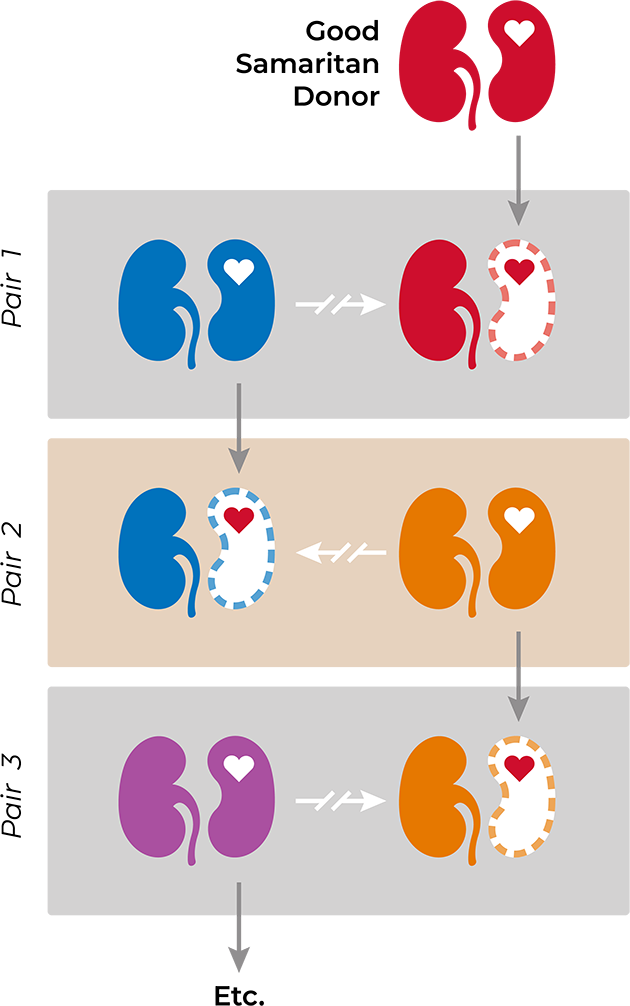Kidney Paired Donation (KPD)
In KPD, a donor will donate their kidney to another recipient in exchange for a compatible kidney for their friend or family member.
KPD was originally created to overcome donor-recipient incompatibility; however, compatible pairs often participate in KPD to find a donor who is a better match to their paired recipient. A better match usually means the transplanted kidney will last longer and the recipient will require less immunosuppressive medication.
How Kidney Paired Donation Works

When a person (Recipient A) is in need of a kidney and has a willing donor (Donor A), but Donor A is either a poor match to Recipient A or not a match at all, the NKR can find a recipient who is in need of a kidney (Recipient B) and has a donor (Donor B) who is willing to donate, but is either a poor match or not a match at all to Recipient B, but is a match to Recipient A and, have them swap.
In traditional kidney paired donation, Donor A is a match and gives to Recipient B and Donor B is a match and gives to Recipient A. This is a “swap.” In the example to the right, the first pair, a mother and her son, are incompatible. The second pair, a husband and his wife, are also incompatible. In this exchange, the mother donates to the wife of the second pair and the husband donates to the son in the first pair; this is called a loop.

In a paired exchange chain (shown in the illustration at left), a Good Samaritan donor (Donor A), most likely a family voucher donor, gives to Recipient B, Donor B gives to Recipient C and Donor C gives to someone else in a similar situation to Donor and Recipient B and C.
Protections for KPD Donors
All NKR KPD donors are prioritized for a living donor transplant in the extremely rare case they ever need a kidney transplant in the future.
NKR KPD donors are eligible for the support and protections covered by Donor Shield.
KPD and the Voucher Program
Typically, all of the surgeries in a KPD swap happen on the same day, which can cause scheduling issues. Because of that, in many cases traditional KPD is being replaced by the Standard Voucher Program, which also overcomes incompatibility issues but makes scheduling surgery more convenient and flexible for the donor.